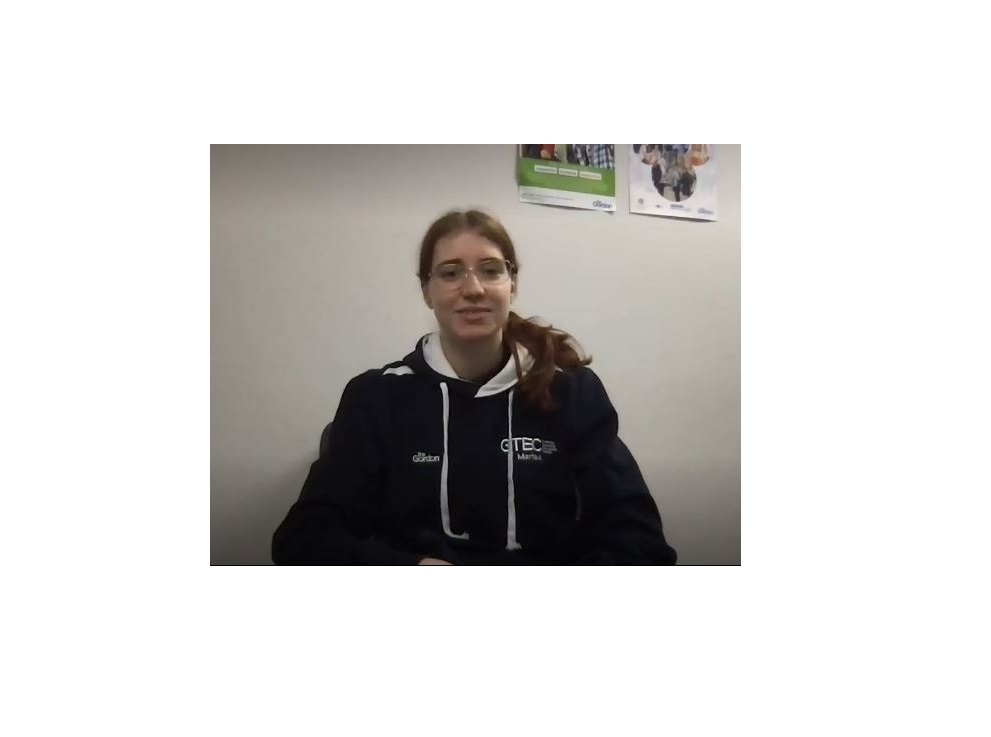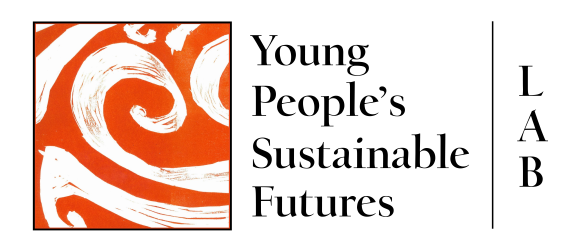
COVID-19 and Disadvantaged Young People’s Education and Employment Aspirations: A Longitudinal Study of Young People’s Transitions in Geelong.
The Young People’s Sustainable Futures Lab is delivering a 3 year project which provides Geelong region stakeholders with an evidence base to foster the education and employment aspirations of young people from disadvantaged backgrounds in the wake of a COVID-19 youth labour market crisis. This evidence is contributing to regional, state, national and international debates about the challenges and opportunities that emerge for young people’s education, training and employment pathways at the convergence of the 6th Mass Extinction and the 4th Industrial Revolution – the convergence ‘between an advanced knowledge economy, which perpetuates patterns of discrimination and exclusion, and the threat of climate change devastation for both human and non-human entities’ (Braidotti 2019).
One of the ways in which we are doing this is by conducting video interviews with a diverse group of young people in Geelong, including many young people who can be identified as marginalised, disengaged or living with historical disadvantage – although what this means, or what the consequences of this might be, cannot be assumed to be either uniform or known in advance.
This is the second in a series of three blogs in which we feature the stories of Madeline and Marisa, and develop an analysis of what these stories provoke us to think about, and how the stories can make a productive contribution about young people’s hopes and aspirations in post-pandemic Geelong.
In 2021, Marisa was 17 years old, in Year 11, and living with her parents and older sister. She was undertaking the Victorian Certificate of Applied Learning (VCAL) at the Geelong Technical Education Centre (GTEC). Marisa described her goals for the future:
Okay, so well, my goal in the future is either to become a geologist or work as a curator in a museum. I think I’ve always really liked historical artefacts, and also learning about the Earth. So I think it’d be a really cool thing to get into.
However, Marisa had recently changed schools from Matthew Flinders Girls Secondary College to GTEC after feeling pressured towards pursuing VCE and university studies, a pathway she wasn’t sure was the right fit for her. Marisa’s older sister is studying radiography at university, and perhaps observing her sister’s experience of tertiary education has influenced Marisa’s desire to pursue a more vocational path while she weighs up whether she wants to go to university:
Before I do [geology or museum studies]… I think I just want to go become a jeweller and then maybe like a gemologist to just get more information about it. I think it’s a really good starting point for me, to see if I sort of want to go down a more artistic or sciencey path, because I think it’s the sort of a career where you need to know some things about science and then know how to think creatively and create new designs. ..
I thought about my options when I was at Matthew Flinders doing VCE, and I wasn’t sure if I wanted to go to university straight away, because I didn’t think I was ready. I thought I didn’t want to make a full time commitment and waste a lot of money doing something that I’m not sure I would like. That’s why I was thinking about going and doing a basic certificate course to see if I like jewellery making before I do it. That way I can be sure.
Marisa is aware of the different types of knowledge and experience she will need to get where she wants to go, and that will be of benefit in her future career:
I think I have to be pretty confident with my knowledge of certain gems. I don’t think I really have that at the moment. I think I definitely need to read a lot more and get more practical knowledge, which I’ll hopefully get on placement next year which will help with that. So this will help me figure out if I really want to do this or if I don’t. That way, I can choose to follow up on other things.
The ability to complete work at her own pace was something that Marisa valued about GTEC:
I was at Matthew Flinders originally before I came here [to GTEC], and I became too stressed with the workload. That’s why, yeah, that’s why I moved here. I suppose I was a bit unhappy for a while because I thought, if I’m not doing VCE, I’d be receiving… it would be a large difference in the education that I’d be getting here. But it’s okay, it’s not too bad. I think it’s sort of, yeah, the work you can do at your own pace, it’s relatively easy and you can make.. with other things, you can make them as complicated as you want. So if I really want to make something good, I can try hard to make it that way. So that’s really nice.
Marisa’s story highlights the pressure placed on young people in senior secondary years to make decisions about their future in a short amount of time. By placing so much emphasis on the Victorian Certificate of Education (VCE) and the ATAR score, schools assume that the majority of students want to pursue tertiary education at university. For Marisa, VCE and the ATAR score is not ‘the be-all and end-all’:
I’ve always been really indecisive about what I want to do…But I hope I can do what I want to do. I think, even if I change my mind, I know there’s different ways and different pathways that I can take to get them.
I think schools don’t stress that enough, because they usually act like VCE and getting an ATAR score is the be-all and end-all, and it honestly doesn’t seem that way, because I know heaps of students who got decent ATAR scores at our school and then have gone into University and then decided, ‘actually, I hate this’, and then either changed subjects, changed what they’re doing, or just dropped out.
So yeah, I think you’ve just got to explore all your options to figure it out. And I think that’s what I’m trying to do now, is just figure out what I want to do.
Marisa suggested that there was an expectation that young people would continue to perform well academically while navigating the various challenges thrown up by the pandemic. Marisa observed that this pressure was too much for some of her peers to bear:
I think recently during COVID there were a lot of suicides. I think it was really sad, especially since… well before that one of my friend’s brothers also committed suicide. I think it really impacted him in a terrible way and I think COVID just made it worse. I think a lot of kids are getting stressed by school and that’s sort of what causes them to feel really disheartened, because they’re so stressed. They just decide to end it, which really sucks! Because I feel like they shouldn’t feel like that.
Schools’ concern with academic performance often came at the expense of promoting ‘understanding more about the world’. Marisa wished that her education could provide her with knowledge, skills and capabilities that would benefit her not only in her future job or career, but in life more generally. Again, she suggested that time pressures often precluded this:
I feel like schools really pressure kids to always do better. And it’s a great thing to always want to improve, but there’s gotta be a point where you’ve got to realise that kids at this age want to understand more about the world, but you’ve got to give them the time to learn and understand it.
I think schools usually just chuck subjects in your face, and they were really good and interesting, but yeah, I think there needs to be more time allowed for kids to be able to explore things outside of school. Whether it’s maybe an extra subject they could study, or something they can do themselves, I feel like there should be more time for kids to do things outside of school. And in school as well, to learn more things about the world and learn things about themselves – discover what they like, what they don’t like, and to think about the world more, and like ethics and morals I suppose.
Marisa discussed how schools could facilitate young people exploring ethics and morals with reference to the example of jewellery and gems, a personal interest of hers. With the process of jewellery making involving practices which are often environmentally and socially destructive, she suggested it was important for young people, as consumers of these products, to learn about practices of ethical consumption:
I love jewellery, but I think usually, gold mining has been a really bad problem in Australia and in other countries, environmentally and socially. Usually local populations are taken advantage of to mine things. So it’s not really good. But I think it’d be great for kids to learn about that. Especially to learn how to buy things, ethically, as well. And to know and research, ‘hey, if I’m going to get something, where does it come from?’ So they’re not supporting something that hurts other people. I think kids really care about that nowadays, I think It’s really good as well.
